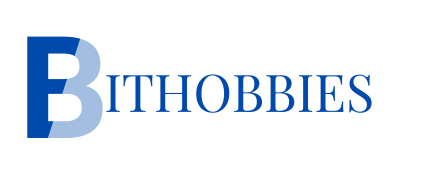In today’s workplace, wage disputes are not uncommon. Employees may encounter situations where they believe they have been underpaid, overpaid, or have not received the correct amount for overtime. Resolving these issues can often be challenging and stressful. However, one of the most critical tools in these disputes is the paystub. This document serves as a detailed record of an employee’s earnings and deductions, providing crucial evidence to support any claims regarding wage discrepancies.
Understanding the Importance of Paystub
A paystub—sometimes called a paycheck stub or earnings statement—is a document that an employer provides to an employee with each paycheck. It includes detailed information about the employee’s earnings for that pay period as well as year-to-date totals. Paystubs typically itemize gross wages, taxes, deductions, and net pay.
For employees, paystubs are essential for several reasons:
- Verification of Earnings: Paystubs provide a breakdown of earnings, allowing employees to verify that they have been paid correctly for all hours worked, including overtime.
- Tax Records: Paystubs serve as a record of taxes withheld, which is crucial for preparing annual tax returns.
- Loan Applications: Lenders often require recent paystubs to verify income when processing loan applications for mortgages, car loans, or personal loans.
- Dispute Resolution: In cases of wage disputes, paystubs are key evidence that can help resolve discrepancies.
Common Wage Disputes and the Role of Paystub
Wage disputes can arise from a variety of situations. Some common issues include:
Underpayment
Underpayment occurs when an employee is not paid the full amount they are owed. This could be due to miscalculation of hours, incorrect wage rates, or omitted overtime pay. By reviewing their paystubs, employees can identify discrepancies between hours worked and pay received.
For example, if an employee works 45 hours in a week but is only paid for 40, their paystub will reflect this. Using this document, the employee can approach their employer with specific evidence of the underpayment.
Overtime Discrepancies
Overtime pay is often a source of contention. Employees who work more than the standard 40 hours per week are typically entitled to overtime pay, which is usually 1.5 times their regular rate. If an employee believes they have not been compensated correctly for overtime, their paystub will show the total hours worked and the amount paid, making it easier to dispute any discrepancies.
Incorrect Deductions
Paystubs also detail deductions for taxes, insurance, retirement contributions, and other withholdings. If an employee notices unexpected or incorrect deductions, they can use their paystub to identify and dispute these errors. For instance, if too much has been deducted for healthcare premiums, the paystub will provide the necessary evidence to rectify the situation.
The Benefits of Using a Free Paystub Maker
With the advent of digital tools, creating and managing paycheck stubs has become more accessible. Employers and employees alike can benefit from using a paystub generator. Here’s how:
Accuracy
A free paystub maker ensures that all necessary information is included and calculated correctly. This reduces the risk of human error that can lead to wage disputes.
Convenience
These tools simplify the process of generating paycheck stubs. Employees can receive their paystubs electronically, making it easier to store and access them when needed.
Transparency
A free paystub maker promotes transparency by providing a clear, detailed breakdown of earnings and deductions. This transparency helps build trust between employers and employees, as both parties have a clear record of all transactions.
Steps to Take When Disputing Wage Issues
If you find discrepancies in your pay using your paystub, here are steps to effectively dispute the issue:
- Review Your Paystub Carefully: Ensure you understand all the components of your paystub. Identify the specific areas where discrepancies exist.
- Gather Evidence: Collect all relevant documents, such as time sheets, contracts, and previous paycheck stubs, to support your claim.
- Communicate with Your Employer: Approach your employer or HR department with your findings. Provide them with copies of your paystubs and other supporting documents.
- Submit a Written Complaint: If the issue is not resolved through initial discussions, submit a formal written complaint. Include all evidence and a clear explanation of the discrepancy.
- Seek Legal Advice: If your employer does not address the issue, you may need to seek legal advice or contact labor authorities. Your paystubs will be vital in building your case.
Preventing Wage Disputes
While paystubs are crucial in resolving disputes, it’s also important to take steps to prevent these issues from arising in the first place. Employers should ensure accurate time tracking, transparent payroll processes, and clear communication about pay rates and deductions. Regularly reviewing and auditing payroll records can also help identify and correct errors before they lead to disputes.
Conclusion
Paystubs play an indispensable role in the workplace. They not only provide a record of earnings and deductions but also serve as essential evidence in wage disputes. By understanding and utilizing their paycheck stubs, employees can ensure they are paid fairly and accurately for their work. Additionally, leveraging tools like a paystub generator can enhance accuracy, transparency, and convenience, ultimately fostering a more trustworthy and harmonious workplace.
In an era where wage issues can arise for various reasons, the humble paystub stands as a vital document for employees and employers alike. Ensuring you have accurate, detailed, and accessible paycheck stubs is a key step in safeguarding your financial rights and resolving any wage-related concerns efficiently.







More Stories
Childish Clothing And Childish
Elegant Kitchen Remodeling Services
Gallery Dept shirt represents more than just an article of clothing